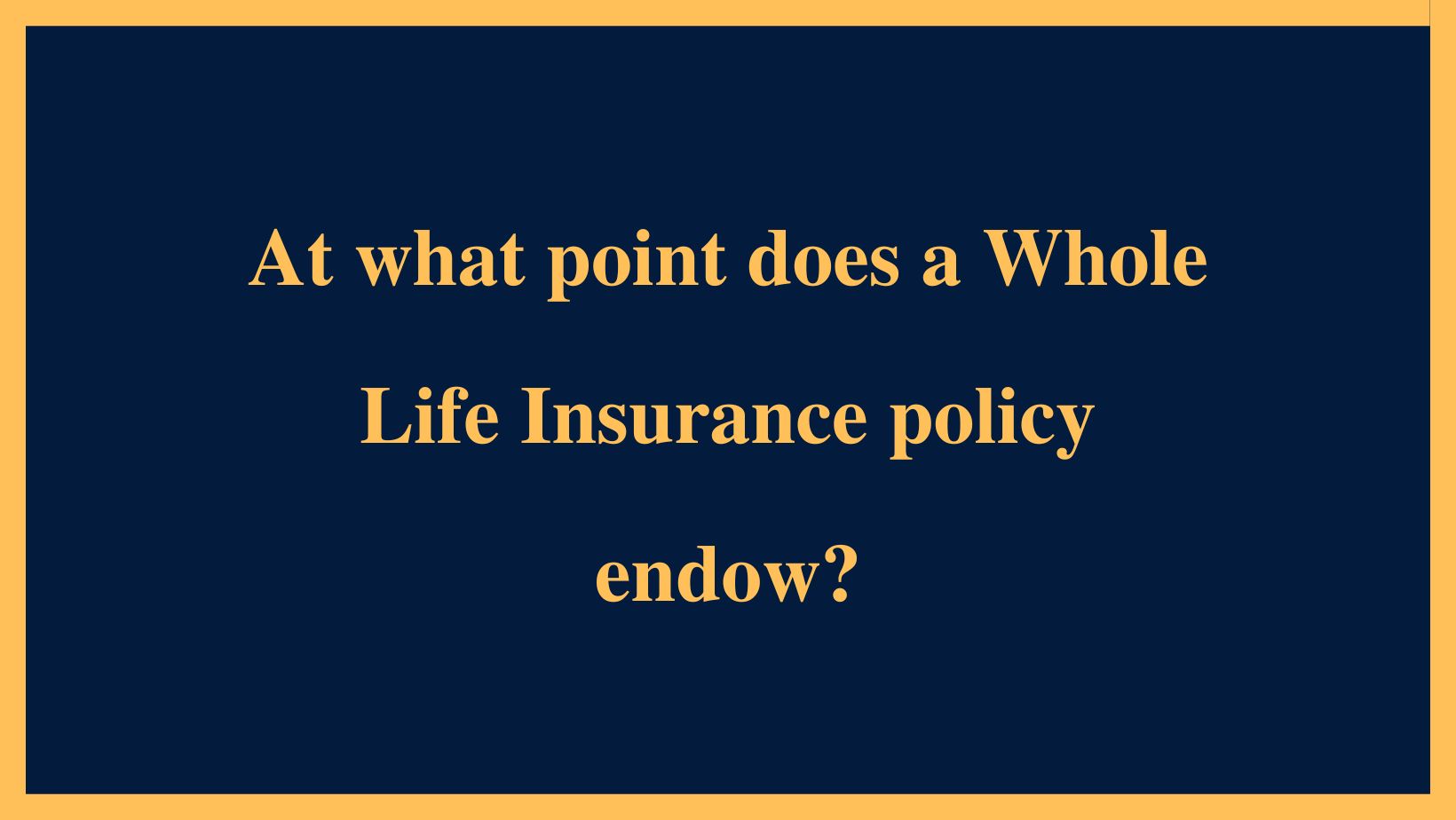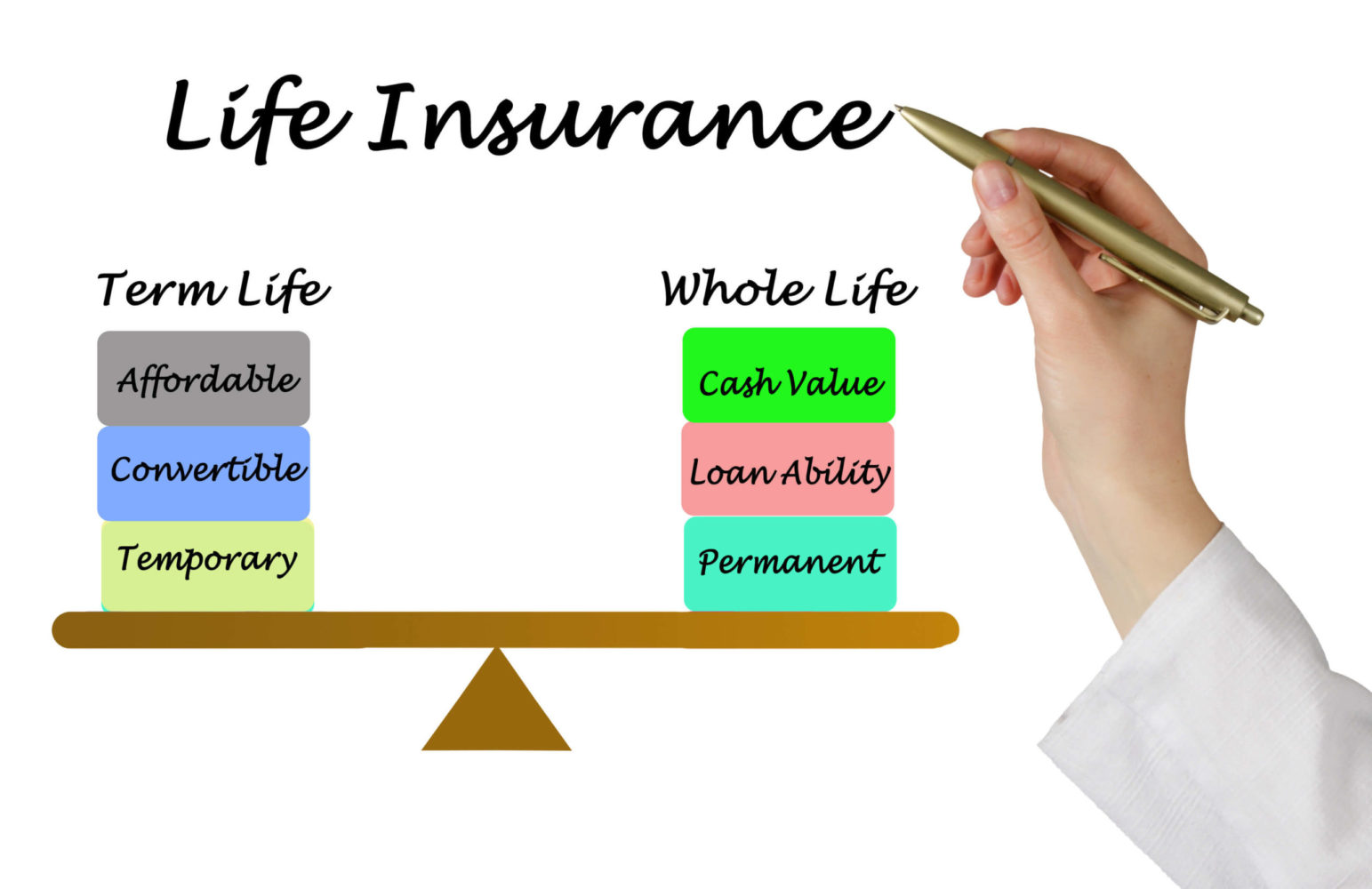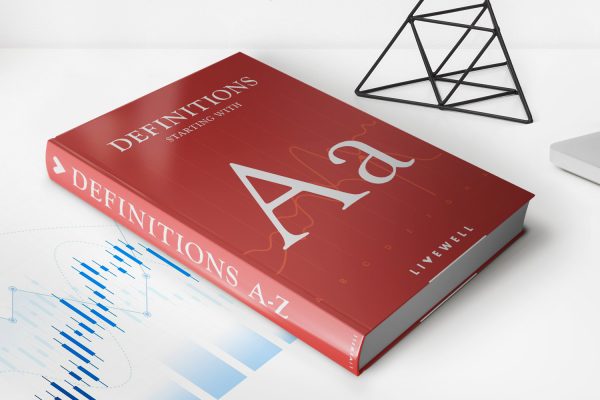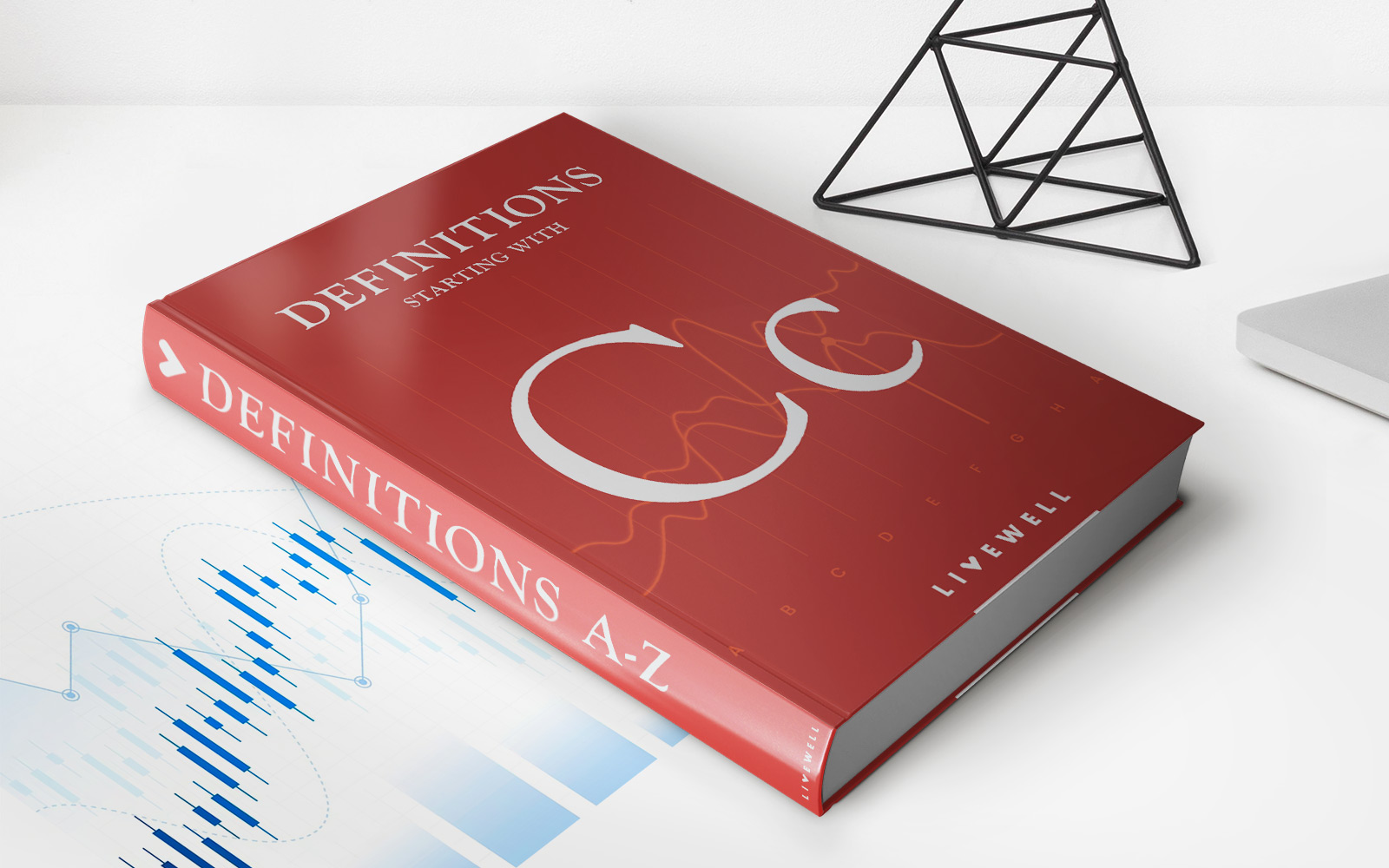

Finance
What Is Graded Whole Life Insurance?
Published: November 17, 2023
Learn about graded whole life insurance and how it can provide financial security for your loved ones. Explore the benefits and features of this type of life insurance policy.
(Many of the links in this article redirect to a specific reviewed product. Your purchase of these products through affiliate links helps to generate commission for LiveWell, at no extra cost. Learn more)
Table of Contents
- Introduction
- Definition of Graded Whole Life Insurance
- How Does Graded Whole Life Insurance Work?
- Pros and Cons of Graded Whole Life Insurance
- Who Should Consider Graded Whole Life Insurance?
- How to Choose a Graded Whole Life Insurance Policy
- Common Misconceptions about Graded Whole Life Insurance
- Conclusion
Introduction
When it comes to financial planning, life insurance is an important consideration. It offers peace of mind and financial security to your loved ones in the event of your passing. However, navigating the world of life insurance can be overwhelming, as there are several types of policies to choose from.
One type of life insurance that you may come across is graded whole life insurance. This unique policy provides coverage for your entire lifetime, but with a twist. Graded whole life insurance is designed for individuals who may have difficulty obtaining traditional life insurance due to health conditions or other factors.
In this article, we will explore the concept of graded whole life insurance, how it works, the pros and cons, and who may benefit from this type of policy. We will also debunk some common misconceptions surrounding graded whole life insurance, helping you make an informed decision about your life insurance needs.
Life insurance is an essential financial tool, and understanding the options available to you is crucial. So, let’s dive into the world of graded whole life insurance and discover how it can provide you and your loved ones with the protection you need.
Definition of Graded Whole Life Insurance
Graded whole life insurance is a type of permanent life insurance that guarantees coverage for the entirety of your life, as long as premiums are paid. What sets it apart from traditional whole life insurance is the way it handles the application process and potential health risks.
With graded whole life insurance, the underwriting process is simplified, making it more accessible for individuals who may have difficulty qualifying for other types of life insurance. This means that even if you have certain pre-existing health conditions or a higher risk profile, you may still be able to secure a graded whole life insurance policy.
Unlike term life insurance, which provides coverage for a specific period of time, graded whole life insurance policies do not expire as long as you continue to pay the premiums. This makes it an attractive option for those looking for lifelong coverage and peace of mind.
It is important to note that graded whole life insurance policies typically come with a waiting period before the full death benefit is available. During this waiting period, typically 2-3 years, the policy will have limited coverage. If the policyholder passes away during this waiting period, the beneficiaries will typically receive a return of the premiums paid plus interest, rather than the full death benefit.
Upon the completion of the waiting period, the policy transitions into a full death benefit, providing the full coverage amount to beneficiaries upon the insured’s passing. This waiting period helps mitigate the risk for the insurance company as they take on individuals with higher health risks.
Overall, graded whole life insurance offers individuals an opportunity to obtain life insurance coverage despite potential health challenges or higher risk factors. By providing lifelong coverage and simplified underwriting, it offers security and peace of mind for those who might otherwise struggle to secure traditional life insurance.
How Does Graded Whole Life Insurance Work?
Graded whole life insurance operates on a simple premise – as long as you continue to pay the premiums, your coverage remains in effect for your entire life. However, there are some specific aspects of how this type of policy works that are important to understand.
Firstly, graded whole life insurance policies often have a simplified underwriting process. This means that instead of undergoing a detailed medical examination and answering numerous health-related questions, the application process typically involves answering a few basic health-related questions. This makes it more accessible for individuals with health conditions or higher health risks to obtain coverage.
Once your application is approved, you will start paying premiums on a regular basis. It’s important to note that the cost of premiums for graded whole life insurance may be higher than other types of life insurance due to the increased risk associated with the simplified underwriting process.
During the initial period of the policy, typically 2-3 years, there is a waiting period. This means that if you were to pass away during this time, your beneficiaries would not receive the full death benefit. Instead, they would typically receive the premiums paid plus interest. The waiting period serves to protect the insurance company from potential high-risk claims during the early stages of the policy.
After the waiting period is over, the policy transitions into a full death benefit coverage. This means that if you pass away at any point after the waiting period, your beneficiaries will receive the full coverage amount stated in the policy. It’s important to review the terms and conditions of the policy to understand the specific details of the waiting period and the coverage it provides.
Another important aspect of graded whole life insurance is the cash value accumulation. As you pay your premiums, a portion is allocated to a cash value account. Over time, this cash value grows and can be accessed through policy loans or withdrawals, providing you with a potential source of funds for emergencies or other financial needs. However, it’s crucial to note that accessing the cash value may reduce the death benefit and can also incur interest charges or impact the policy’s performance.
It’s important to thoroughly review and understand the specific terms and conditions of the graded whole life insurance policy you are considering. Each policy may have variations in terms of the waiting period, premium amounts, cash value accumulation, and other details. Consulting with a licensed insurance professional can help you navigate through the complexities and ensure that the policy aligns with your financial goals and needs.
Pros and Cons of Graded Whole Life Insurance
Like any financial product, graded whole life insurance has its advantages and disadvantages. Understanding the pros and cons can help you make an informed decision about whether this type of policy is right for you. Let’s explore some of the key pros and cons of graded whole life insurance.
Pros:
- Simplified Underwriting: One of the main advantages of graded whole life insurance is the simplified underwriting process. If you have pre-existing health conditions or a higher risk profile, you may still be able to obtain coverage, whereas traditional life insurance may be more challenging to secure.
- Lifetime Coverage: Graded whole life insurance provides coverage for your entire lifetime. As long as you continue to pay the premiums, your policy remains in effect, offering peace of mind and financial security to your loved ones.
- Cash Value Accumulation: Graded whole life insurance policies typically come with a cash value component. As you make premium payments, a portion is allocated to a cash value account that grows over time. You can access this cash value through policy loans or withdrawals, providing you with potential funds for emergencies or other financial needs.
- Death Benefit: After the waiting period, graded whole life insurance policies provide a full death benefit to your beneficiaries. This means that upon your passing, your loved ones will receive the coverage amount stated in the policy, providing financial support during a difficult time.
Cons:
- Higher Premiums: Due to the simplified underwriting process and the potential higher risk associated with graded whole life insurance, the premiums for these policies may be higher compared to other types of life insurance.
- Waiting Period: Graded whole life insurance typically comes with a waiting period, during which the coverage is limited. If you were to pass away during this waiting period, your beneficiaries may only receive a return of the premiums paid plus interest, rather than the full death benefit.
- Limited Coverage Options: Graded whole life insurance policies may have limitations in terms of coverage amounts and policy options. It’s important to carefully review the details of the policy to ensure it aligns with your specific needs and financial goals.
When considering any insurance policy, it’s crucial to weigh the pros and cons against your individual circumstances and financial objectives. Evaluating your health, budget, and future needs can help determine whether graded whole life insurance is the right fit for you.
Who Should Consider Graded Whole Life Insurance?
Graded whole life insurance can be a suitable option for individuals who may have difficulty qualifying for traditional life insurance due to health conditions or other factors. Here are some specific scenarios where graded whole life insurance may be worth considering:
Pre-existing Health Conditions:
If you have pre-existing health conditions such as diabetes, heart disease, or cancer, it might be challenging to obtain traditional life insurance coverage. Graded whole life insurance offers an opportunity to secure coverage despite these health challenges. While there may be a waiting period before the full death benefit is available, this type of policy can still provide peace of mind and financial protection to your loved ones.
Higher Risk Profile:
Individuals with high-risk occupations or hobbies, such as firefighters, pilots, or extreme sports enthusiasts, may also find it difficult to obtain traditional life insurance coverage. Graded whole life insurance offers an alternative solution, as it often has simplified underwriting, making it more accessible for those with higher risk profiles.
Individuals with a Limited Budget:
Graded whole life insurance, despite potentially higher premiums, can still be an attractive option for those with a limited budget. This type of policy provides coverage for your entire lifetime, eliminating the need to worry about coverage expiring or having to renew a policy in the future.
Estate Planning:
If you have specific estate planning needs, such as providing liquidity for estate taxes or leaving a financial legacy to your heirs, graded whole life insurance can be a useful tool. The permanent nature of the policy ensures that there will be a payout upon your passing, which can help address potential financial obligations and provide for your loved ones.
It’s important to note that while graded whole life insurance can be a suitable option for individuals in certain circumstances, it may not be the ideal choice for everyone. It’s essential to consider your specific needs, budget, and long-term financial goals when determining if this type of policy aligns with your overall financial plan.
Consulting with a licensed insurance professional or financial advisor can help you evaluate your options and determine the most appropriate type of life insurance for your situation. They can guide you through the process, explain the details of graded whole life insurance, and help you make an informed decision based on your unique circumstances.
How to Choose a Graded Whole Life Insurance Policy
Choosing the right graded whole life insurance policy requires careful consideration of your individual needs and financial goals. Here are some key factors to consider when selecting a policy:
Assess Your Coverage Needs:
Start by evaluating your financial obligations and determining how much coverage you need. Consider factors like debt, mortgage, future education expenses, and the financial well-being of your dependents. This will help you determine the appropriate coverage amount for your graded whole life insurance policy.
Evaluate Premium Costs:
Graded whole life insurance policies may have higher premiums compared to other types of life insurance due to the simplified underwriting process and potential higher risk factors. Carefully evaluate your budget and ensure that you can comfortably afford the premiums over the long term.
Review the Waiting Period:
Each graded whole life insurance policy has a waiting period before the full death benefit becomes available. Understand the duration of the waiting period and the limited coverage provided during that time. Consider how this waiting period aligns with your financial circumstances and the level of risk you are willing to accept.
Research the Insurance Company:
When choosing a graded whole life insurance policy, it’s important to research and select a reputable insurance company. Look for companies with a strong financial rating and a track record of excellent customer service. This ensures that your policy will be reliable and that your claims will be handled efficiently when the time comes.
Understand the Cash Value Component:
Graded whole life insurance policies often come with a cash value accumulation component. Take the time to understand how this cash value grows over time and the options for accessing it, such as policy loans or withdrawals. Consider whether the flexibility of the cash value component aligns with your financial goals and needs.
Seek Professional Advice:
Choosing the right graded whole life insurance policy can be complex. It is highly recommended to work with a licensed insurance professional or financial advisor who can guide you through the process. They can help you understand the nuances of the policies, answer any questions you may have, and ensure that the policy you choose aligns with your financial objectives.
By carefully considering these factors and seeking professional guidance, you can ensure that the graded whole life insurance policy you select provides the coverage and financial protection you need for yourself and your loved ones.
Common Misconceptions about Graded Whole Life Insurance
Graded whole life insurance can sometimes be misunderstood due to its unique features and simplified underwriting process. Let’s address some common misconceptions about graded whole life insurance:
Misconception 1: Graded Whole Life Insurance is the same as Term Life Insurance
While both types of insurance provide a death benefit, graded whole life insurance is a form of permanent life insurance, whereas term life insurance provides coverage for a specific term, typically 10, 20, or 30 years. Unlike term life insurance, which expires once the term ends, graded whole life insurance remains in effect for your entire life as long as premiums are paid.
Misconception 2: Graded Whole Life Insurance is Too Expensive
It is true that graded whole life insurance can have higher premiums compared to some other life insurance options. However, these premiums are reflective of the simplified underwriting process and the potential higher risk associated with individuals who may have difficulty obtaining traditional life insurance. It’s important to consider your unique circumstances and budget before concluding that graded whole life insurance is too expensive.
Misconception 3: Graded Whole Life Insurance Coverage is Limited
Graded whole life insurance policies do have a waiting period, typically 2-3 years, during which the coverage is limited. However, after the waiting period, the policy transitions into a full death benefit coverage. It’s crucial to review the specific terms of the policy to understand the waiting period and the coverage it provides. This waiting period is designed to manage the risk for the insurance company and make coverage accessible to individuals who may have higher health risks.
Misconception 4: Graded Whole Life Insurance is Only for Unhealthy Individuals
While it is true that graded whole life insurance can be a viable option for individuals with pre-existing health conditions or higher risk profiles, it is not exclusive to unhealthy individuals. Anyone who prefers simplified underwriting or wants lifelong coverage can consider graded whole life insurance. The policy is designed to make life insurance accessible for a broader range of individuals, not solely those with existing health issues.
Misconception 5: Graded Whole Life Insurance Offers No Flexibility
Graded whole life insurance policies often include a cash value component, which provides some flexibility. As you pay your premiums, a portion is allocated to a cash value account that grows over time. This cash value can be accessed through policy loans or withdrawals, providing you with potential funds for emergencies or other financial needs. However, it is important to note that utilizing the cash value may impact the death benefit and incur interest charges, so it’s essential to understand the terms and conditions of the policy before making any decisions.
By dispelling these common misconceptions, you can gain a clearer understanding of what graded whole life insurance truly offers. As with any insurance product, it is important to thoroughly review the policy, consult with professionals, and make an informed decision based on your unique needs and circumstances.
Conclusion
Graded whole life insurance is a unique type of policy that provides coverage for your entire life, even if you have pre-existing health conditions or a higher risk profile. It offers a simplified underwriting process and can be a viable option for individuals who may have difficulty qualifying for traditional life insurance.
While graded whole life insurance has its pros and cons, it offers certain advantages, such as lifelong coverage, simplified underwriting, and potential cash value accumulation. However, it’s important to consider the waiting period and potential higher premiums associated with this type of policy.
When choosing a graded whole life insurance policy, it’s crucial to assess your coverage needs, evaluate premium costs, and review the waiting period. Researching and selecting a reputable insurance company is also essential, as is understanding the cash value component of the policy.
Remember that graded whole life insurance is not the same as term life insurance and offers specific features and benefits. It is a suitable option for individuals with pre-existing health conditions, a higher risk profile, a limited budget, or estate planning needs.
Dispelling common misconceptions about graded whole life insurance can help you make an informed decision. Graded whole life insurance is not exclusive to unhealthy individuals, nor is it prohibitively expensive. It offers flexibility through its cash value component and is designed to provide coverage for a wide range of individuals.
Ultimately, the choice to pursue graded whole life insurance depends on your unique circumstances, needs, and financial goals. Consulting with a licensed insurance professional or financial advisor can help you navigate through the complexities and select the most suitable policy for your situation.
Graded whole life insurance can provide you and your loved ones with the peace of mind and financial security you desire. By understanding how it works and weighing its benefits against your specific needs, you can make a well-informed decision to protect your future.














